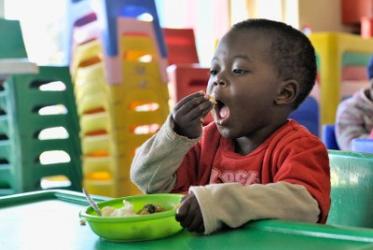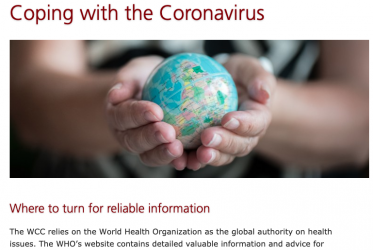Displaying 141 - 160 of 227
“Es hora de tomar medidas: neutralicemos este virus”
19 June 2017
G7 must address famine
22 May 2017
Applications open for WCC Eco-School
10 May 2017
UN discussion focuses on women, HIV and property rights
21 March 2017
“It’s time to be brave, to form diverse partnerships”
02 March 2017








